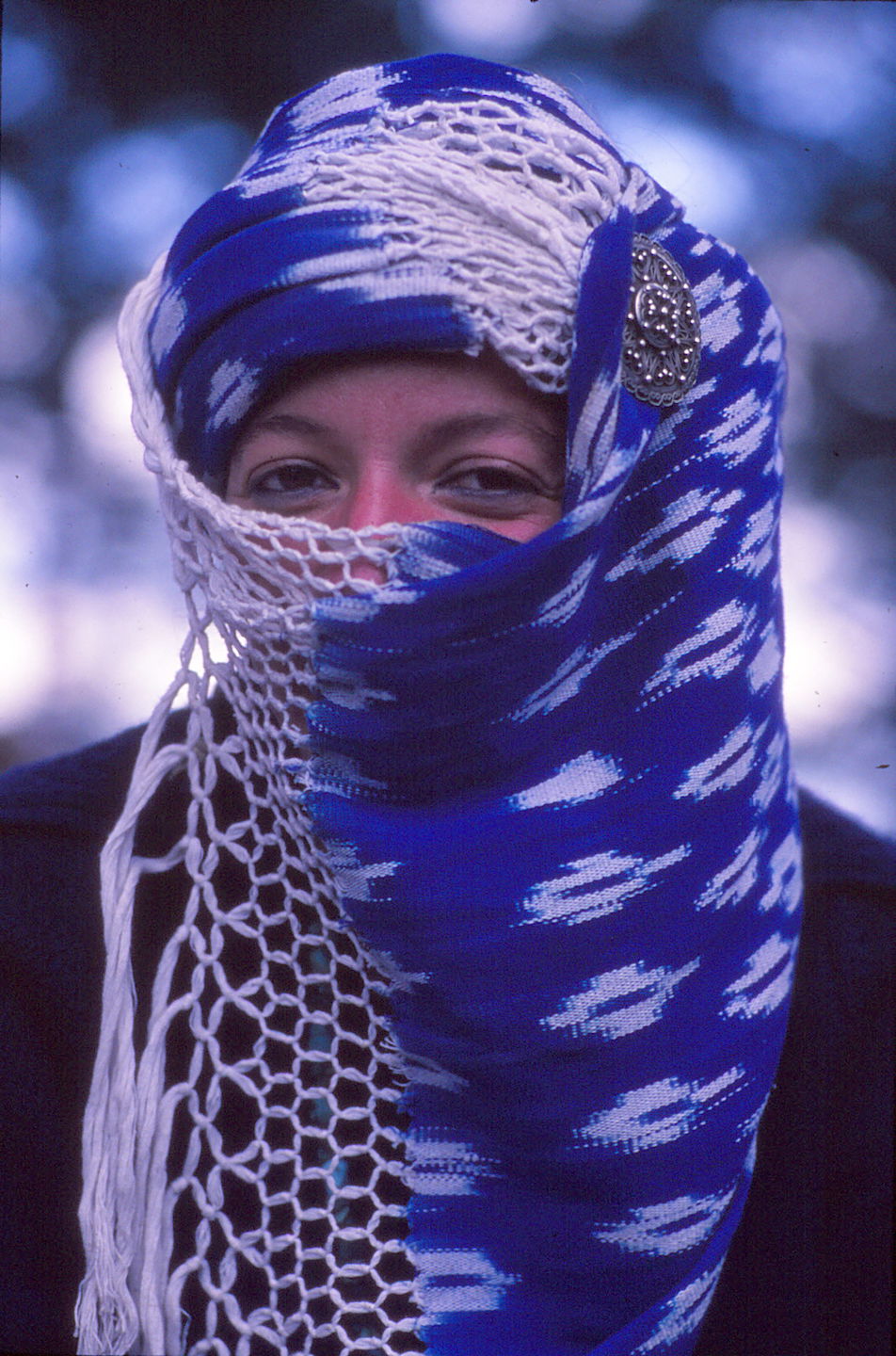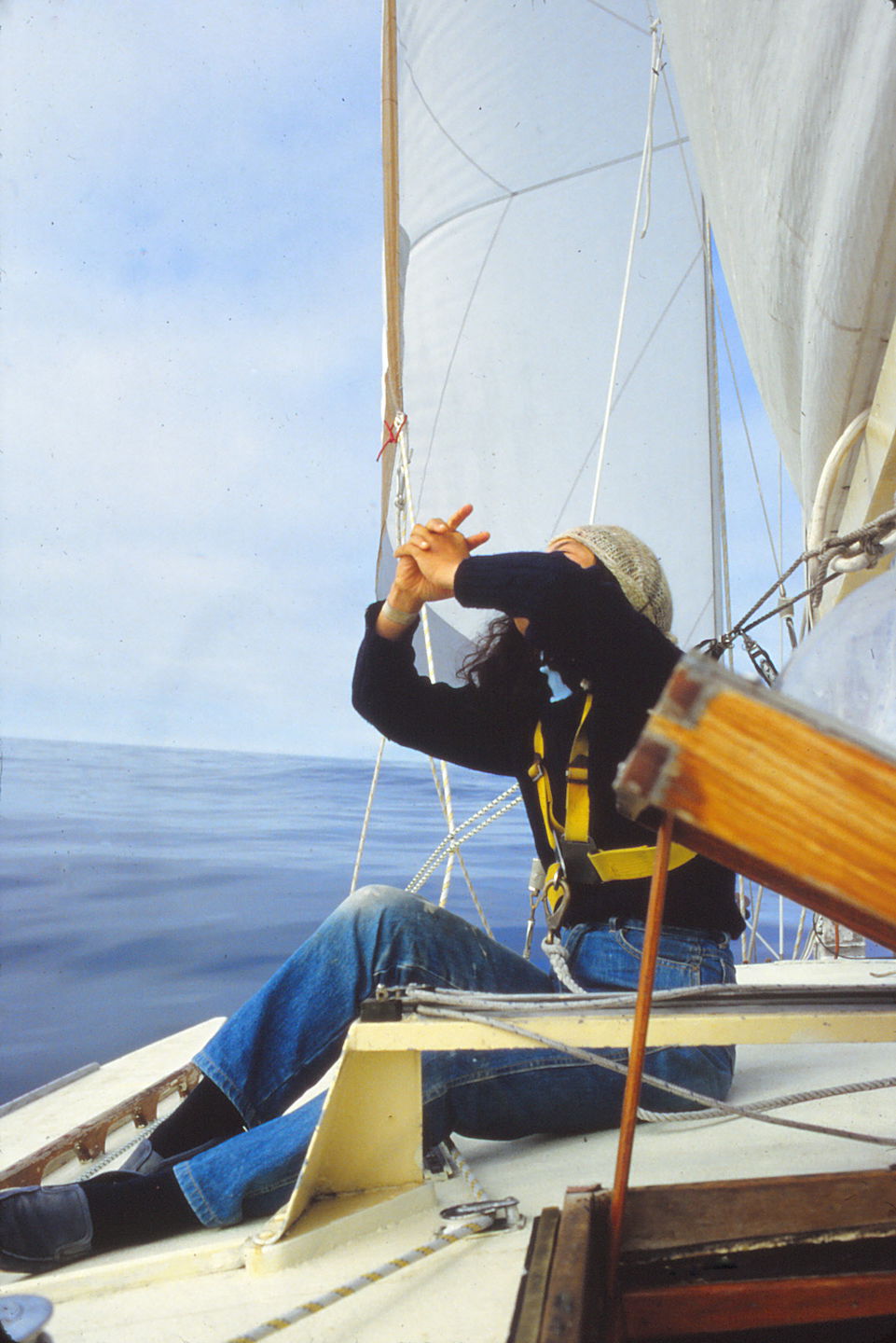THE SUMMONINGS

THE SUMMONINGS
by William Thomas
One pleasant summer afternoon walking in the woods with my Berber lover, the woman whose bright blue turban matched eyes that kindled my soul signalled a halt. She was, she announced with a flourish of jeweled rings and shamanic-like rattle of bracelets, going to call a creature made notable by its absence.
This I had to see. As fellow outlaws who’d traded laser-looks at the island meeting I’d called to strategize BC’s first clearcut-logging blockade, I loved everything about this fierce little gypsy – who’d risked everything writing a book in French revealing that nation’s depredations against her people. Especially how she wrapped her Gallic accent around English in summoning “une daare.”
Still, this was a stretch. Except for a pair of crow scolds and a chittering eagle earlier remarking our presence, we had apprehended no other signs of life all afternoon. “Mais oui,” I said.
Stopping at the edge of a forest opening, Mila smudged us both with a twist of smoking sage. Next, repeating a ritual she led before we dressed each morning, we gave thanks to the Four Directions. Then, with emptied minds, we stood side-by-side looking out our eyes, this larger-than-life warrioress intoning words I could not identify.
Nothing disturbed the silence that followed. Minutes passed. A deer stepped into the clearing. This most skittish of animals walked directly towards us, completely unafraid. “Hello,” I said without speaking.

Six years earlier…
Elbows braced on the hatch coaming, I stood in the companionway eying a sunblasted realm Celerity’s crew called, Blue Desert. Spellbound in the center of a three-million-square-mile High, the trimaran who reacted instantly to the slightest ripple sat motionless on a painted sea. No slatting sail, nor a single complaining block disturbed an oceanic stillness broken only by the first plaintive notes of a saguhachi coming from up forward.
Seated on the edge of the cabinroof, the first Japanese woman to cross the North Pacific under sail had curved both hands above her head in a salute to the Father of all Winds. Only then did she commence to play.
That haunting refrain seemed perfectly suited to such magnificent desolation, where week after week the prevailing westerlies – reliably recorded since the earliest days of square-rigged commerce – had failed to appear.
I had been careful to keep my growing concern over our remaining stores of water and propane to myself. Dropping below, I reflexively checked the unmoving barometer before updating the log with the latest sextant fix. “Distance run noon-to-noon: 35 nm. Speed 0. Calm.” Pursued first by the Yakuza and then by the Japanese Defense Forces for the adult daughter of a modern-day daimyo’s forbidden cohabitation with a gaijin, we had escaped after intense sail drill and the captain’s clever ruse into this dream within a dream.
With the very notion of land somewhere far beyond either memory or longing, we were simply here. And judging by the heart given voice by the instrument into which it breathed, this master musician – who had never been on a boat and told me on first meeting of her longing to “hear first music” of waves tirelessly circling a newborn waterworld – was overjoyed to be home.
I straightened abruptly from the chart table. Another voice had joined her flute!
Gaining the deck, I was stunned to see a small, tern-like bird zooming close around the boat.
Singing back to Hiromi.
Where had it come from? The inhospitable Aleutians lay nearly a thousand miles to the north. The nearest continents: 2,400 sea-miles astern, another 2,000 ahead. Except for an eerie day-long carpet of inflated jellyfish parting before our triple bows, since departing the fog-shrouded coast of Honshu we had encountered no life below, on or above this endless empty sea.
Singing its heart out as it circled, this miniature flying miracle sounded ecstatic to find, in all this immensity, a great broad-winged seabird conversant in her tongue.
Sugoi, I whispered. Subarachi.
Then I bowed to twinned spirits I could never pretend to know.
Photo Captions:
Mila in her traditional Berber headcovering -Will Thomas photo
Hiromi salutes the sun, two weeks out of Japan -Will Thomas photo